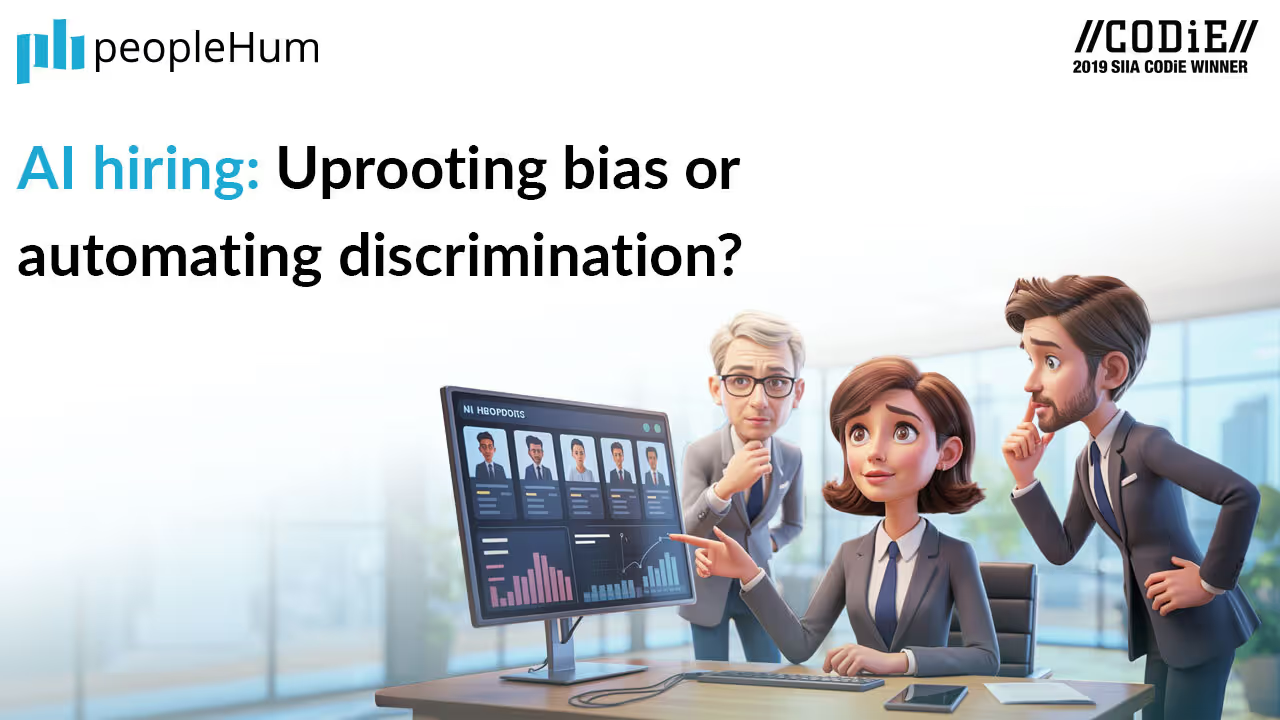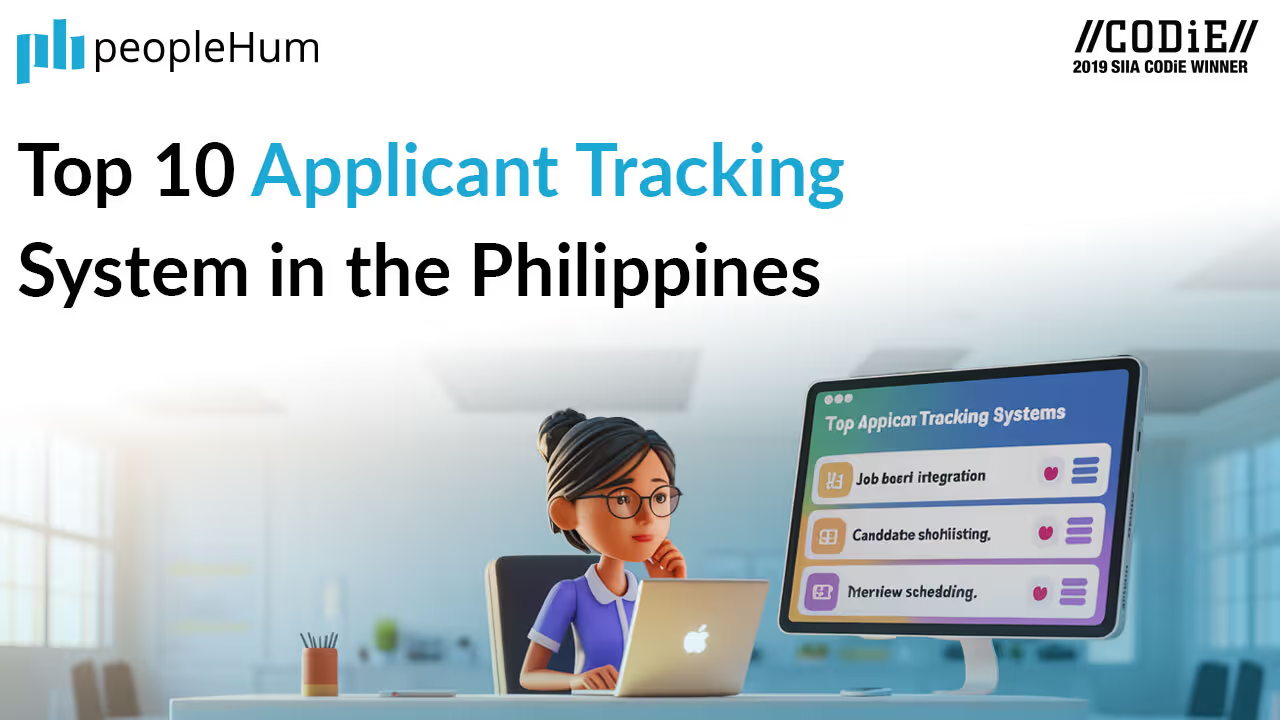Everyone is sold on the promise of AI - AI is perfect for hiring. Algorithms scanning resumes, analyzing skills, and picking the best fit without HR folks making judgments. AI promises to wipe out human prejudice, judge candidates on merit alone, and give everyone a fair shot. The fantasy is that a machine can't be racist or sexist. It’s an attractive thought. But that’s not how it works.
For every article about AI "reducing bias," there's a story of it going horribly wrong. The hype machine is in full force, promising a utopian hiring future, but the reality is much messier. AI doesn't create bias; it replicates and amplifies it.The question isn't whether AI is a magic solution. The real question is whether it's actually getting rid of old problems or just repackaging them with a shiny new tech label. Are we really uprooting bias, or are we just automating discrimination at a speed and scale we can’t even comprehend?
The myth of the unbiased machine: Garbage In, garbage out
AI hiring systems are trained on data - which itself comes from the company's historical hiring patterns. It's a reflection of who you've hired in the past. If your leadership team is 90% male, a system trained on that data is going to learn that being male is a key trait for success. It’s supposed to be fair, objective, and data-driven.
Here, the AI isn't "thinking" for itself; it's just repeating what it’s been taught. It's a glorified pattern-matcher, and the patterns it's matching are the same old biases we've been trying to get rid of for decades.
You can't fix a human problem with a technical solution alone. We hear a lot about "data-driven" decisions. But if the data is a reflection of a biased past, then being "data-driven" just means you're driving right into a wall of your own making. AI is a reflection of the data it's trained on.
The "black box" and the lack of accountability
- The "black box" problem: The "Black Box" problem is a major issue with AI in hiring. AI makes a decision, but the reason why is not always clear. A human hiring manager might tell you they didn't hire someone due to their lack of experience in a specific area. An AI, however, might reject them for a reason that is completely unrelated and discriminatory.
- Lack of transparency and accountability: This lack of transparency makes it almost impossible to challenge a discriminatory decision or even understand what went wrong. For the HR team, it's a decision they can't defend. You can’t just shrug and say, “The computer did it.” That’s a lawsuit waiting to happen.
- "Just a tool" is a "cop-out": Many people in HR and tech will say, "The AI is just a tool. It's how you use it that matters." That's true, but it's a cop-out.. If the tool you're using is proven to be discriminatory, you are responsible for that outcome - it's a business and legal risk.
- Demand transparency: You have to demand transparency from your AI vendor. Ask for clear metrics: What factors does the AI prioritize? How does it score candidates? If they can’t explain it, they’re hiding something.
The unintended consequences of AI optimization
AI optimization in hiring, while aiming for efficiency, creates several unintended consequences that can harm a company's talent pipeline and long-term health. These consequences are often overlooked in the pursuit of faster and cheaper hiring.
1. The homogenization of talent
When an AI system is trained on data from a company's past "successful" employees, it learns to identify and prioritize candidates who share similar traits. This leads to a workforce that is homogenized, lacking new ideas, diverse perspectives, and the creative tension necessary for innovation.
2. The gamification of job seeking
AI-driven hiring turns the job application process into a game where candidates try to "beat the algorithm." This forces job seekers to focus on optimizing their resumes and interview responses with specific keywords and formats to get a good "score." This system shifts the focus from being a great candidate to being great at manipulating a machine.
3. The focus on the wrong metrics
AI systems are great at measuring easy metrics like time-to-hire and cost-per-hire. But, they are not optimized for more important, long-term indicators like quality of hire, employee retention, and the overall health of the company culture. By prioritizing speed and cost, companies are sacrificing the quality they are trying to achieve.
The cost of getting it wrong
- Reputational damage: If an AI unfairly rejects qualified candidates, word will get out. A viral social media post about a "shady algorithm" can severely damage your company's reputation and make it harder to attract top talent in the future. HR is on the front lines, responsible for cleaning up this public relations mess.
- Missed talent: A biased AI can cause you to lose out on excellent candidates who could have been your company's next top performers. This directly impacts your talent pool and can hinder your company's future growth and innovation.
- Diversity and innovation: Failing to hire a diverse team doesn't just look bad; it hurts your bottom line. Diverse teams are more innovative and perform better financially. Algorithmic bias can tank your diversity efforts, which can lead to a decrease in creativity and profitability.
- Reinforcing existing patterns: AI is a pattern-matcher. If it feeds on historical hiring data that subtly favors certain demographics or attributes, AI will learn these patterns and use them as the "gold standard." It won't see this as a bias, but as an optimal solution. This automates and amplifies existing prejudice, rather than rooting it out.
The only real solution: A human-AI partnership
Be transparent about what’s happening. This isn't just about showing goodwill; it's about building trust and accountability.
- AI as a Talent Sourcing Tool. AI can be used to scan millions of resumes and find candidates with non-traditional backgrounds who have the skills for the job. This helps break the cycle of hiring people who all look the same.
- Tell Candidates How AI is Used. If a candidate is being screened by an AI, they should know it. They should know what data points are being used and what the system is looking for. This empowers them to understand the process and gives them a chance to challenge it if they feel they were unfairly evaluated.
- Audit, Audit, Audit. You need to be running regular audits to make sure your AI isn't discriminating. This is not a one-and-done deal. You need to test it with a diverse set of resumes and track its outcomes across different demographics. If the AI is found to be biased, you need to be willing to scrap it.
- Removing the Noise: Let the AI handle the mundane, repetitive tasks like screening for basic qualifications. But the final decision, the gut feeling, the cultural fit, the human element has to stay with a person.
The future of HR is about using AI to augment human intelligence. The best use is to find talent that might otherwise be overlooked. It's a tool to expand our horizons, not narrow them.
Wrapping it up
AI hiring can be a force for good, but only if you play it smart. First, demand clean, diverse data - garbage in, garbage out. Second, prioritize skills-based assessments over resume signals. Keep humans in the loop for the final call. Run tests, check outcomes, and don’t be afraid to ditch a tool that’s not delivering.
HR, you’re the gatekeeper. Use it to cut through the noise, but don’t let it call the shots. AI isn't good or evil. It's a tool. But the way we're using it in hiring right now is dangerous. We have a choice to make. We can either use AI to automate the same old discriminatory practices that have plagued hiring for decades, or we can use it to build a more equitable, inclusive, and fair hiring process.
That’s where PeopleHum comes in. Our all-in-one HR platform empowers organizations to balance AI-driven efficiency with the human intelligence that truly matters. PeopleHum helps HR leaders create a fairer, more inclusive recruitment process—without losing the human touch. Book a demo and see how you can turn AI into a real ally for smarter, bias-free hiring.
FAQs
1. How can AI help eliminate hiring bias when HR departments continue to make subjective decisions?
AI-driven recruitment tools are designed to reduce human bias by objectively evaluating candidates based on their qualifications and performance potential, rather than personal biases that HR departments often bring to the table. This ensures more diverse hiring and better decision-making, making HR’s reliance on gut feeling obsolete.
2. Is AI hiring software truly more effective than HR teams who repeatedly overlook qualified candidates?
Despite HR's best intentions, human recruiters often overlook great candidates due to unconscious biases or lack of experience. AI algorithms remove these barriers, ensuring that the best talent is selected based on data-driven insights, rather than personal assumptions or outdated methods.
3. Can AI in hiring save time and costs when HR departments are still bogged down by outdated, inefficient processes?
AI hiring software accelerates recruitment processes by automating resume screening, candidate ranking, and interview scheduling. This is particularly valuable when HR teams still rely on inefficient manual processes that waste valuable time and resources, delaying hiring and impacting the company's growth.
4. How does AI in hiring protect companies from the risks of HR’s unintentional discrimination or negligence?
HR teams can unintentionally discriminate due to personal biases or misjudgments. AI-driven tools mitigate this risk by providing data-driven insights and ensuring compliance with diversity and anti-discrimination laws, making the hiring process more transparent and legally sound.
5.Why should I trust AI to make hiring decisions when HR teams have failed to improve recruitment diversity for years?
Despite HR's increasing focus on diversity, many organizations still struggle to achieve equitable representation. AI-driven hiring tools use data to ensure that the hiring process is inclusive and unbiased, helping organizations take a concrete step toward diversity while holding HR accountable for past failures.
6. What makes AI hiring a better alternative to HR departments that are stuck in old recruitment habits?
AI-powered recruitment tools analyze vast amounts of data to make more informed and accurate hiring decisions, unlike traditional HR teams that may rely on limited experience or historical biases. This technology streamlines the recruitment process, reducing the chance of HR errors and significantly improving hiring outcomes.



































.png)














